
"MONDAYS: This time loop can't end if the boss doesn't notice" (hereinafter referred to as "MONDAYS"), the name has already filled the shadow of the day. The film was screened at the Beijing Film Festival and the Shanghai Film Festival this year, and received a lot of praise. This small-budget comedy has also been out of the circle.
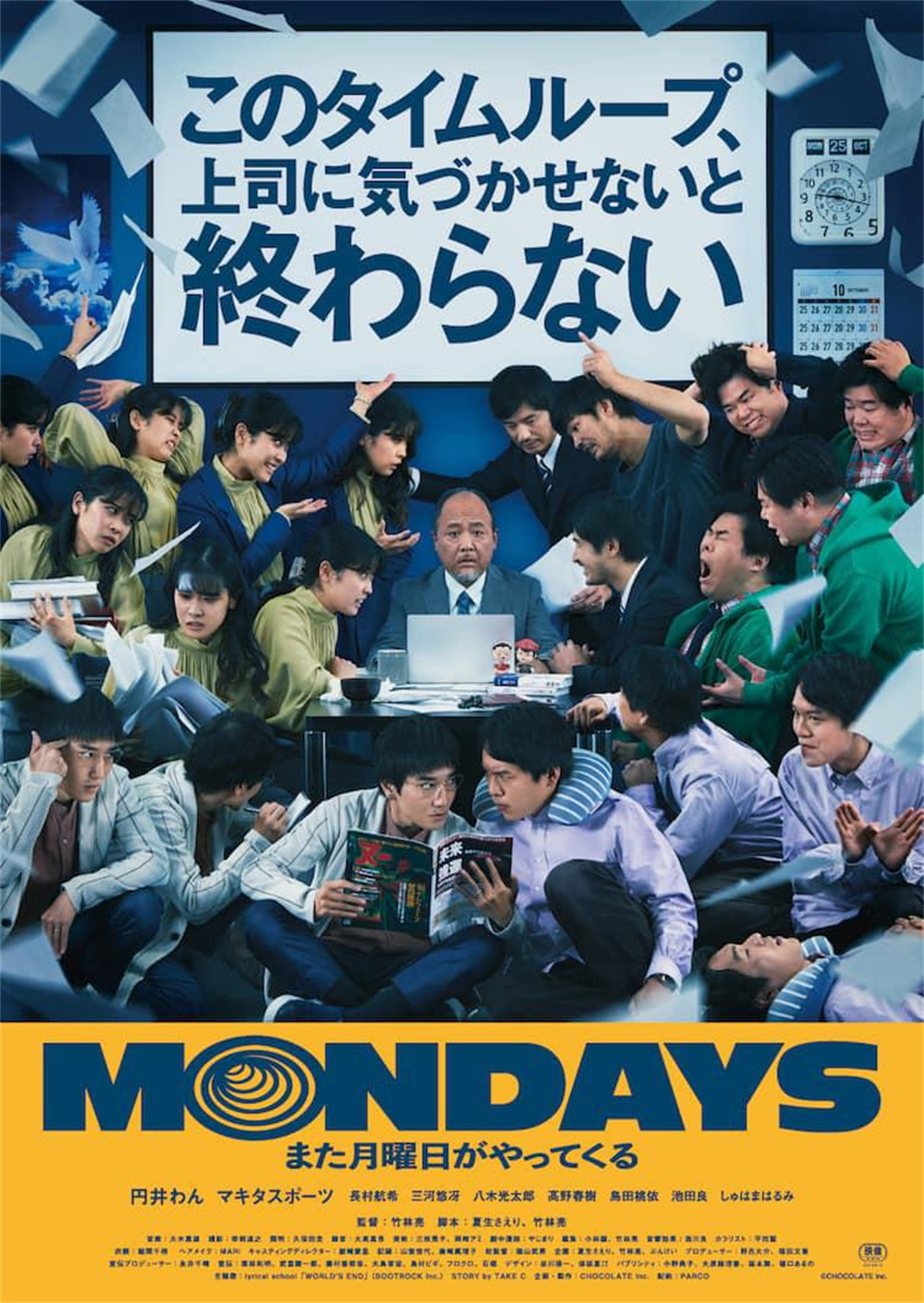
"MONDAYS" Poster
"MONDAYS" tells the story of the white-collar worker Akemi Yoshikawa waking up after a night at the company. In order to make a good impression on the company she is about to change jobs, she went through a week of crazy project work. However, she found herself trapped in this hellish week with her colleagues in the office. The story is not a rare time loop setting, time loop + workplace, which reminds me of the Korean manga "My Boss Dies Once a Day", and the domestic TV series "You Who Saved Ten Thousand Times" adapted from it. It seems that East Asian society and animals all have the same sense of "time loop" for the day-to-day dreadful workplace.
Although the director Zhu Linliang is a new film director, his works cover advertisements, YouTube videos, remote dramas, movies and other forms of expression. Supervised, drafted and co-written by him, the YouTube short "hello! Brand new world" (Video title: I've had enough, I can't take it anymore, I really want to escape.) is also based on the theme of time loops. The Internet celebrity blogger who was imprisoned on the same day broke the curse of the loop through unremitting efforts. The 20-minute film length and simple production conditions have aroused the resonance of countless audiences, received more than 50 million views, and won many awards. It can be said that Zhu Linliang is a director belonging to the Internet era. Many of his creations are inseparable from the Internet's communication methods and content production methods. From YouTube videos to theater movies, this is a "counterattack" story belonging to this era.
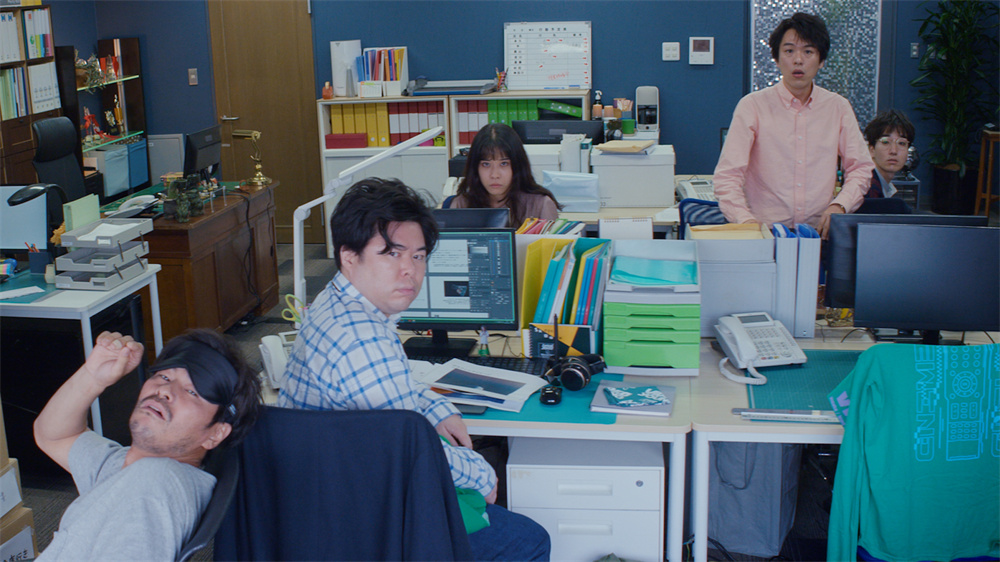
"MONDAYS" Stills
"MONDAYS" uses the office routines that the audience is very familiar with, and lightly outlines a comedy. It also satirizes the inefficient "level-by-level reporting" system in the workplace, and by the way complains about a wave of changes in the advertising industry. I think it is very interesting Zhu Linliang has personal experience in the advertising industry. In the film, the heroine has been cooking oil for a week. Party A’s new product is "Miso Soup Effervescent Tablets". As soon as this new product came out, the sense of absurdity was already full. The author, who has worked in the advertising industry, was attacked by terrible memories in his early years. He especially remembered that the most terrifying thing back then was not the all-night liver project, but the day when this "liver" seemed to never end. "MONDAYS" puts forward the perfect metaphor of "time loop" for the repetitive nature of office life.
Although it is a time loop, the film does not focus on the decryption or adventure content that such high-concept works like to play, but focuses on how everyone in the office gradually makes colleagues aware of the existence of the time loop in the daily life of working as a worker. Finally, attack the boss: because the manga dream that the boss failed to complete seems to be the beginning of the time loop.
Every laughing point, every crisis, is not separated from the daily life of the workers. For example, they are already facing the big crisis of the time cycle, and everyone still insists on clocking in to work very tacitly, because "in case the cycle is suddenly lifted and I don't come to work, Isn't it absent from work?" While trying to save himself and get rid of the cycle, he still didn't forget to submit an advertising plan to Party A. It can be said that he engraved the words "beating workers" and smoked his lungs.
The famous scene in the film is the way everyone in the office tells the boss about the time cycle. It is actually a PPT. The boss doesn’t believe it once, but he will tell it again next time. It is also becoming more and more formal, like a bidding proposal that concerns the life and death of the company.
You have to admire the patience and perseverance of these people. With such a group of employees who are not afraid of danger, calm, calm, and persistent, why can't this company do well.
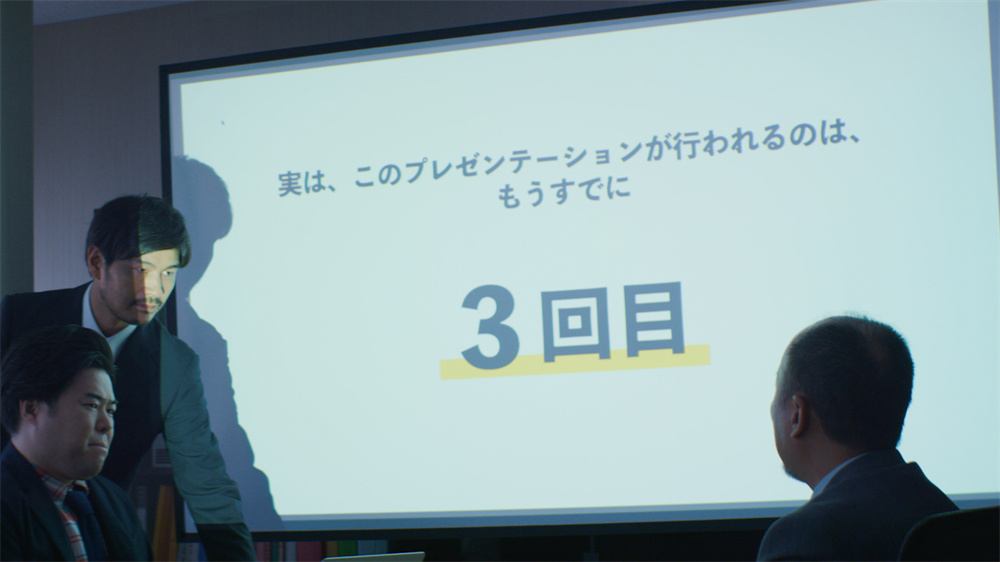
"MONDAYS" Stills
A large part of the fun of the movie comes from the perspective of the heroine, and the gradual understanding of other staff members. At the beginning of the movie, the heroine only cares about job-hopping and promotion, and she doesn't care about her colleagues, but because of the time loop, she is forced to conspire and cooperate with colleagues she didn't care about before, and in the process, these supporting characters The cuteness, fun, and individuality of the characters are also seen by the audience.
This natural familiarization process also makes people feel a little bit: every tool person in the workplace, every screw in the capitalist society is a living, vivid and interesting person. Therefore, the performance of each actor is crucial to the vividness of the comedy in this film, and the actors in this film really have the rhythm of Japanese comedy just right.
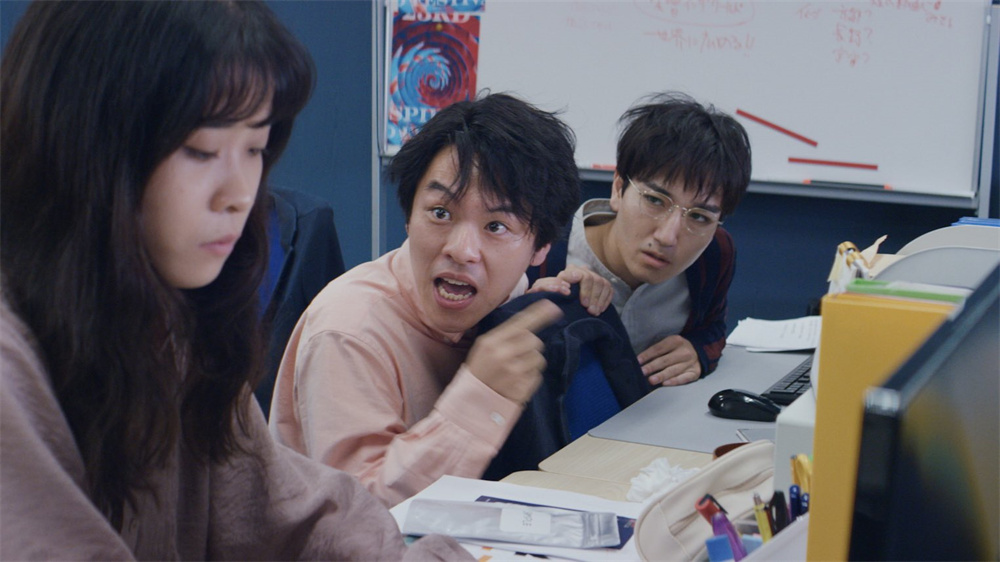
"MONDAYS" Stills
Zhu Linliang's smooth combination of various shots and effective editing gives the film a unique and lively dramatic rhythm, such as the use of repetitions of static and moving images, visually emphasizing the time loop in which everyone is imprisoned, and the repetition of certain static moments ——For example, the repeated appearance of clocks and calendars clearly divides the time chapters of the story and establishes the narrative structure. Its editing also does just enough to enhance the film's comedy. The musical accompaniment is also quirky and fits the comedy theme.
This fast-paced, web-like audio-visual style is just right without being cheap, and it ensures that the comedy never gets tedious or predictable for viewers. Unexpectedly, this absurd comedy has a gentle and tear-jerking sublimation. When everyone is united and wants to fulfill the boss's comic debut dream, Zhu Linliang puts two related thoughts in front of the audience: 1. Is your dream important or everyone's work important? 2. Is an ordinary life worth living?
The former question was answered by the boss who always seemed optimistic and useless: "Although it is important to stick to one's dreams, how many things in the world can be accomplished by one person?" And the second question, At the end of the film, the cartoon completed by the boss with everyone's encouragement gave an old-fashioned but still touching answer. In the comics, with the help of the fox demon, the protagonist who comes back again and again has spent a long life, but still fails to realize his music dream and becomes a white-haired old man. The fox demon asked him:
"It's such an ordinary life, do you want to do it again?"
"No, that's all. I'm going to fly a kite with my grandson. Goodbye."
Although the current society is highly dependent on the cooperation and operation of people and people, to realize personal dreams, I am afraid that some regardless of persistence and strong self-awareness are necessary. However, if this self-consciousness expands into selfishness, individuals begin to blindly Chasing one's own "dream" without regard for others, the relationship between individuals and others will inevitably deteriorate from mutual assistance to one party's blood-sucking pressure on the other party or even confrontation. This is a kind of crazy pursuit of desire that destroys social bonds.
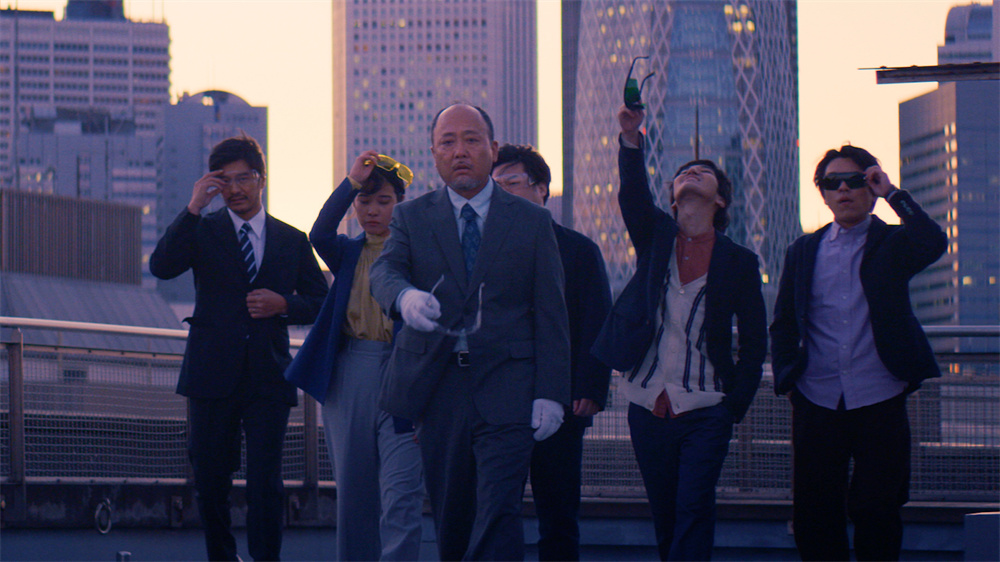
"MONDAYS" Stills
Praising individual "dreams" is the theme of many movies, and failure to realize dreams is the story of most people in reality. So, is a life spent with unattainable dreams a life wasted and full of regrets? In other words, is an ordinary life a life that is not worth living and should be repeated?
The answer is of course no.
"Failed again, do you want to do it again?" "Is the choice wrong? What should I do?" When seeing these words in the movie, the audience can really empathize. But I believe that no matter the people in the film or the movie viewers, they are all people who face the lingering and torment of these problems, but have waded through the mud again and again, and continue to walk on their own roads.


